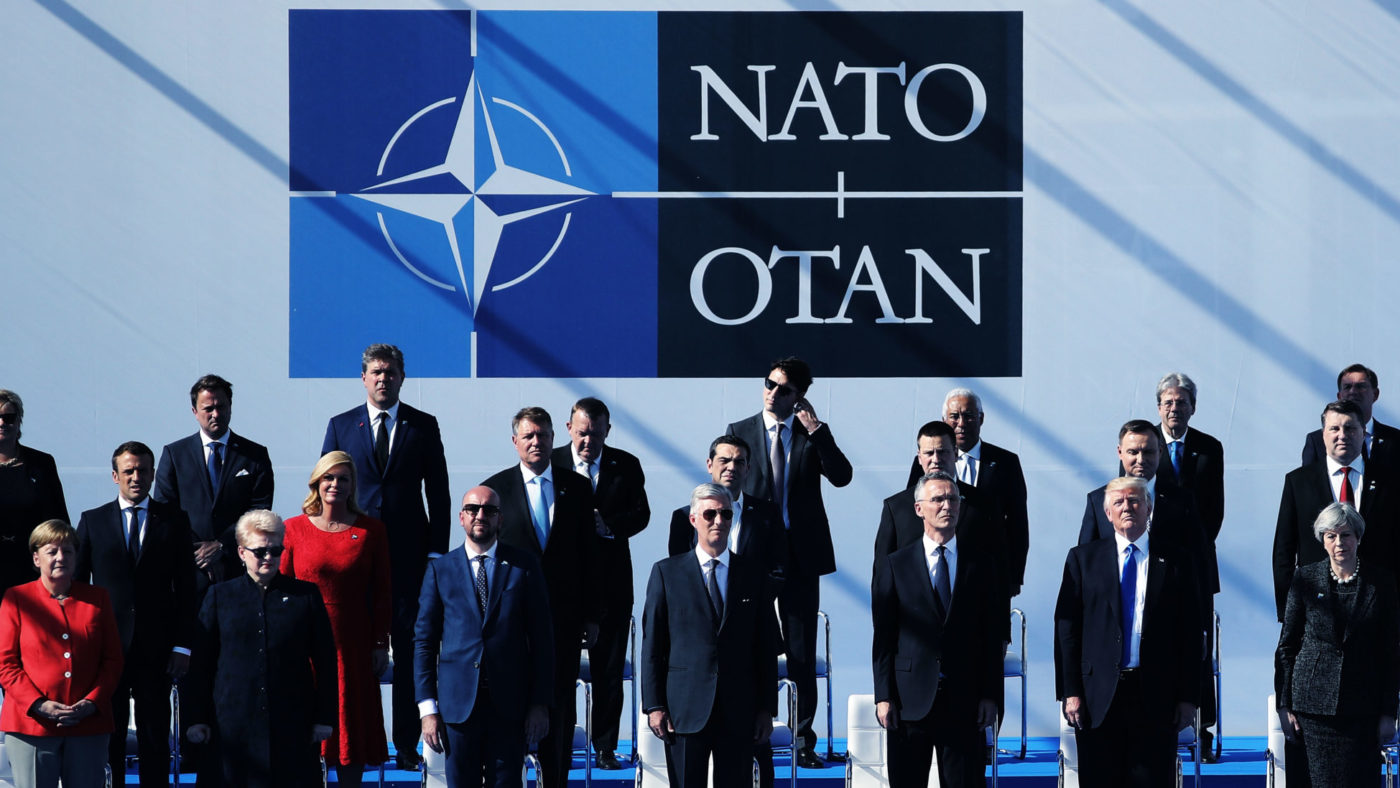NATO leaders will soon assemble in Brussels for their summer summit. The fact that they are meeting in the organisation’s brand new £900 million headquarters should not mask the fact that the alliance has faced some serious challenges of late.
At a recent Henry Jackson Society workshop, jointly hosted with NATO and the Konrad Adenauer Stiftung, one of the key problems facing the alliance was identified as the fact that since 2014 European NATO defence spending has only increased from 1.44% to 1.46% of GDP – way off the 2% they agreed to move towards.
This is the reason that, although US military assets still underpin European defence, US leaders have become increasingly unhappy with their NATO allies, with Donald Trump taking his criticism further than any previous president. It remains unclear whether his rhetoric reflects a new American attitude to the Old Continent, or is just a passing phase.
NATO may very soon be confronted by another problem: it is rumoured that Theresa May has recently questioned the UK’s status as a major military power. In 2017, UK defence spending as a percentage of GDP fell to the second lowest level in recorded history (the lowest being 2015) at just 2.12%. Consequently, whereas the UK had the world’s second largest defence budget in 2005, today it has fallen to sixth place, behind countries with far smaller economies, such as Russia and Saudi Arabia.
Despite acquiring HMS Queen Elizabeth, the largest and most sophisticated warship ever to join the Royal Navy, the fleet has shrivelled to just 19 frigates and destroyers, down from 50 in the early 1990s. With just a couple of hundred combat aircraft, the Royal Air Force is smaller than ever. And the British Army has less manpower than during the Napoleonic Wars two centuries ago. Meanwhile, the UK is having difficulty getting to grips with the “non-linear” warfare methods applied by countries like Russia.
Defence Secretary Gavin Williamson has made it known that he wants another £4 billion a year to begin the modernisation of the British Armed Forces, which have been hammered by a decline in funding since 2010. A modest cash injection like this would take British military spending back up to around 2.5% of GDP, closer to the level spent during the 2000s. It would prevent the UK’s military from falling further behind its competitors, both in terms of size and technological capability.
Yet as the Defence Committee suggested earlier this week, even this is unlikely to be enough. Britain needs to spend closer to 3% of GDP. to invest in sophisticated new equipment across all five strategic domains – land, sea, air, space, and cyberspace – and to enhance intelligence, surveillance, and reconnaissance capabilities.
Why does this matter? It matters because the UK has long decided that it would be more than just another European country. As Lord General Houghton, the former Chief of the Defence Staff, told Radio 4’s Today programme on 26th June: “We should set ourselves a standard higher than that of the average European player. Because the average European player is not how we see ourselves.”
He is right. Since the end of the Second World War, the UK has played the leading role in the development of a European security architecture, which has been structured and defined by Anglo-American military power. This has kept the peace and helped facilitate a surge in European prosperity.
Indeed, 2018 marks the seventieth anniversary of the establishment of the Western Union – a British-led initiative which paved the way for NATO a year later. Ever since then, the UK has remained second only to the US in its ability to project military force into Europe: during the Cold War, it maintained 55,000 troops in West Germany, along with a tactical air force. Simultaneously, it reassured its allies with a nuclear deterrent and potent anti-submarine warfare capabilities in the North Atlantic.
The reason the UK should boost defence spending is to reinforce NATO. Without armed forces of sufficient capacity to underwrite the alliance, it will surely falter. And with the US increasingly involved in the Indo-Pacific region in light of China’s rise, the geopolitical environment is changing fast.
Is Mr. Williamson the person who will begin to put this right? Will he ensure the UK instils fear into its opponents and reassures its NATO allies by modernising the British Armed Forces? Time will tell, but he has signalled good intent.
He must now convince his colleagues to find the money the UK needs to field armed forces sufficiently robust enough to uphold its interests. For without a robust British commitment, NATO will suffer, an opportunity for those who would like to see the alliance consigned to the dustbin of history.


